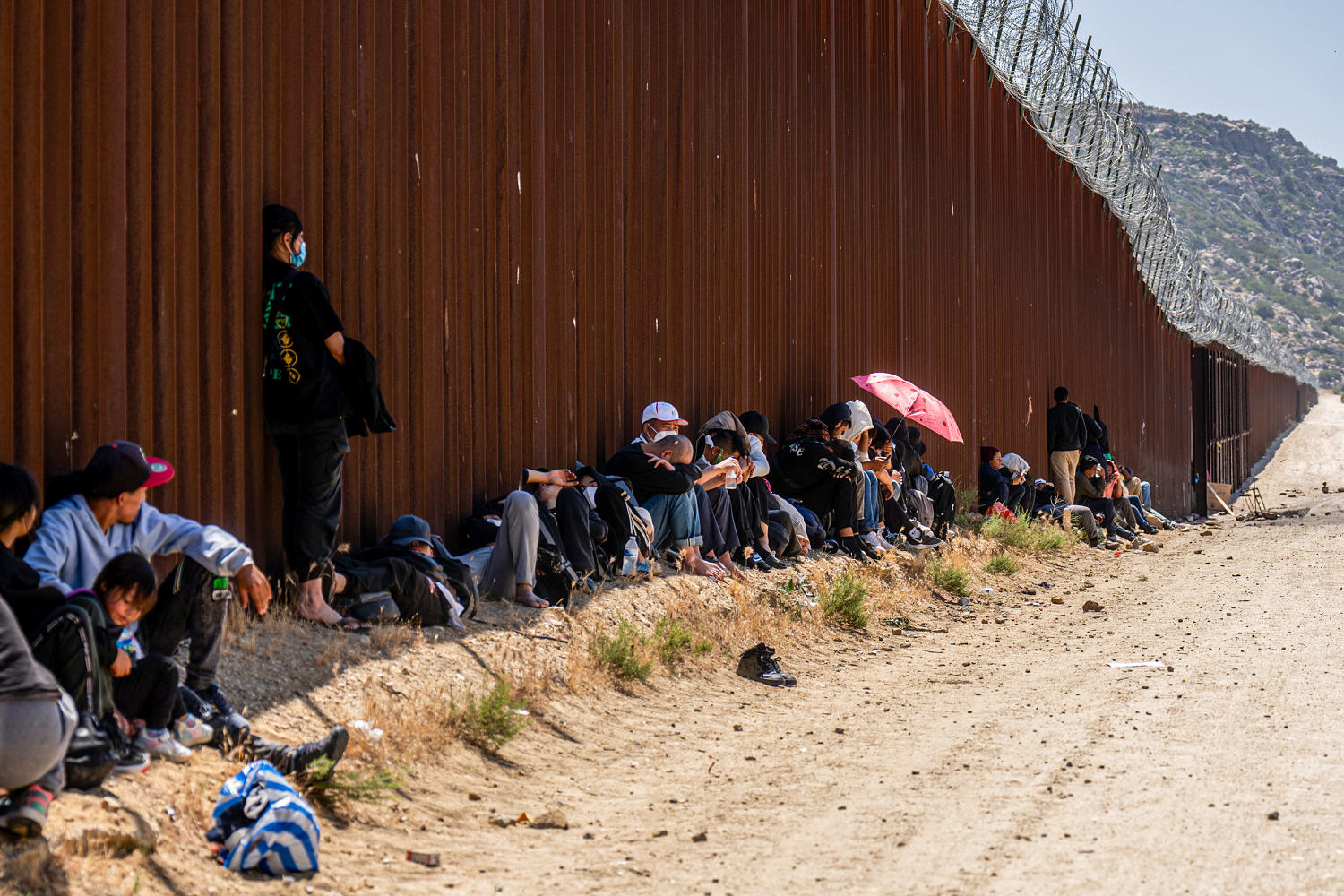
The Biden administration is making contingency plans for a possible surge in border crossings ahead of a Trump presidency, as more would-be immigrants say they are concerned President-elect Donald Trump will shut down the border, according to two US officials and exchanges between immigrants on WhatsApp groups.
On Monday afternoon, nearly 36 hours before Trump declared victory, Homeland Security Secretary Alejandro Mayorkas held a virtual meeting with his top advisers and the heads of Customs and Border Protection and Immigration and Customs Enforcement in which the participants raised concerns about what a possible Trump victory would do to border security.
The questions posed to the group were not unusual, according to two officials with direct knowledge of the call: How was the Department of Homeland Security operationally prepared to deal with a potential spike in immigration? Was there enough bed space in ICE detention to hold immigrants before deporting them? Would the agencies be able to continue placing migrants who do not qualify for asylum on a rapid path toward removal, or would numbers overwhelm the system and force agents to release migrants into the United States with court dates set years into the future?
The officials reiterated that the DHS has not yet seen a surge in migrants heading to the United States. But the concern was raised: If Donald Trump were to be elected, they would predict an increase in migrants trying to enter the country at the last minute, and CBP and ICE needed to be prepared.
A Customs and Border Patrol spokesman said “migrants should not believe the lies of smugglers.”
“The fact remains: the United States continues to enforce immigration law, and migrants should use safe, lawful, and orderly pathways to come to the United States,” the spokesman added.
During the campaign, Trump vowed to deport millions of undocumented migrants should he win election.
As Tuesday night brought news of a decisive victory for Trump, immigrants began to talk on WhatsApp, a common channel for smugglers to advertise their services to people in Central and South America looking to come to the United States. A common theme emerged among multiple users: The time to come to the US is now.
“After the 21 of January he’ll close the borders with extreme security,” said one person on WhatsApp on Wednesday morning, referring to the day after Trump takes office.
“Until the 10th of January there is a chance,” said another, erroneously claiming Jan. 10 was the date Trump would take office, instead of Jan. 20.
“My sister is still in Mexico. “I couldn’t sleep thinking of her,” another WhatsApp user worried.
“He takes power on the 21 of January. “He can’t make any decree yet,” said a messenger. Another replied: “There’s not a lot of (time) left. He has the decrees already in his mind.”
“You have until January to enter,” one person declared.
The operator of a shelter in Tijuana, Mexico, where migrants wait before they enter the US, said he expects smugglers, known as coyotes, to pressure immigrants to start crossing now.
“Of course, the coyotes will arrive, they are going to say that they need to get in before Donald Trump arrives,” said Gustavo Banda, operator of Templo Embajadores de Jesus, which is currently housing about 1,400 migrants.
Banda said there is a feeling of uncertainty among migrants at his shelter, but he tries to keep them calm. “No one knows what is going to happen,” Banda said. “That’s why you have to talk to them, that for the moment, absolutely nothing changes.”
In another part of Mexico near the US border, Francisco Loureiro, a shelter operator in Nogales, said he talked to migrants yesterday about the election outcome and their concerns.
“We have migrants who are worried, who don’t know what is going to happen now with their (CBP ONE) appointment,” Loureiro, who runs the San Juan Bosco shelter in town, said, referring to the app that migrants can use to apply for asylum without entering the US
The shelter operator said that he’s aware of a recent caravan of migrants who left the Mexican state of Chiapas, an area that sits along the border of Guatemala, and have made their way to the northern part of Mexico. And while caravans like these are nothing new, he said, he’s ready for more migrants to potentially head to the Nogales area before Trump takes office.
“I am fortunately prepared to receive more people, obviously within our capacity, but yes, we are prepared,” Loureiro said.

